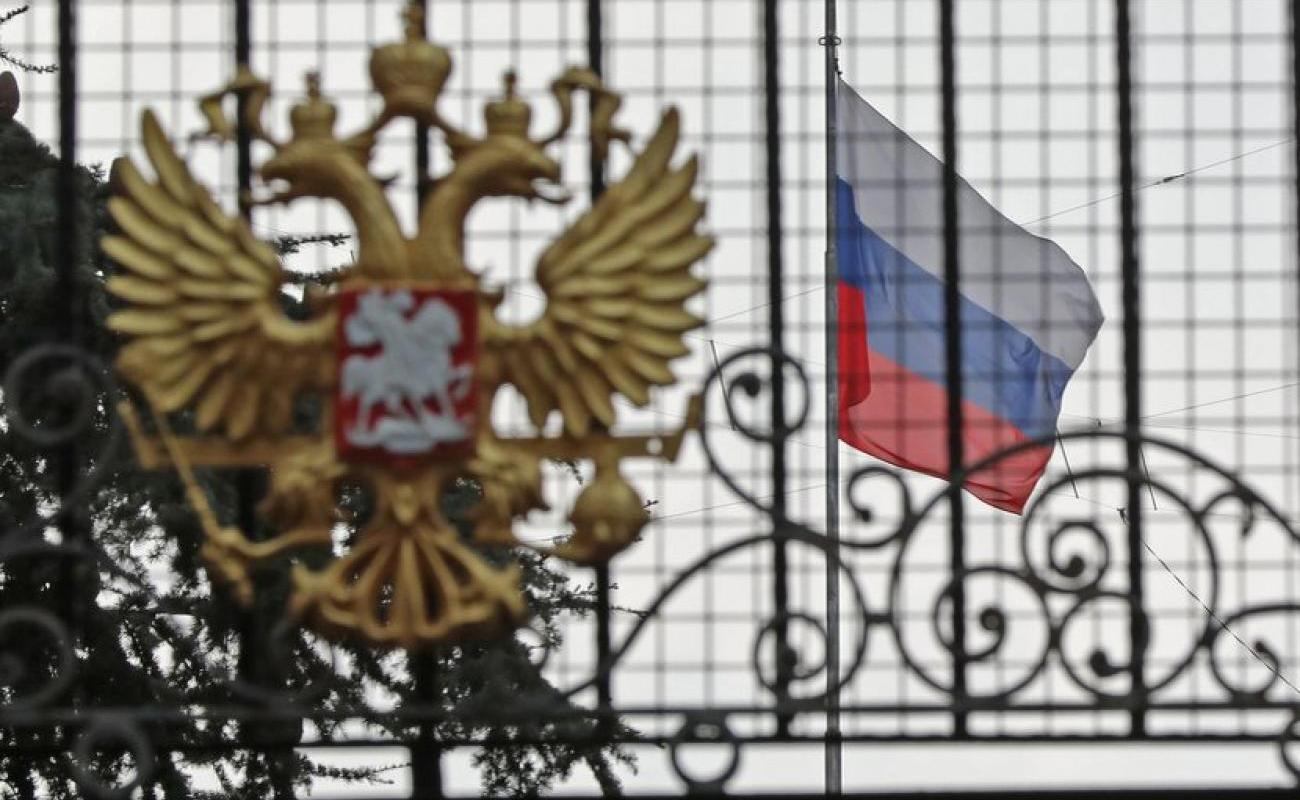“Moldova Is The Next Target In Russia’s Attack On The West, And Something Similar Is Being Prepared For BiH”

As the invasion of Ukraine enters its third year, the Kremlin is opening new fronts in the heart of Europe. In addition to Moldova and Georgia, the Western Balkans – and especially Bosnia and Herzegovina (BiH) – are once again in the crosshairs of Russia’s hybrid war, writes Dr. Ivana Stradner, an advisor at the Foundation for Defense of Democracies.
She explains in her analysis that Putin can “achieve his security goals in these places not through open conflict, but by encouraging separatist movements and influence operations.”
On Monday, Russia’s foreign intelligence service accused NATO of turning Moldova into a “forward base” and “preparing it for involvement in… an armed conflict with Russia.”
Meanwhile, Russian media are spreading baseless claims that Moldova is full of Western intelligence services and that “MI6 is taking control of Moldovan elections.” Moscow has also claimed that Moldova’s intelligence agency is cooperating with Ukraine to sabotage Russia.
“According to this narrative, the West is using Moldova as a weapon against Russia, escalating tensions and pushing the country toward the same fate as Ukraine. In psychology, this is called projection. It is Russia itself that is sowing chaos in the upcoming elections in Moldova,” Stradner writes.
She believes that Russia wants to demonstrate that the West, especially Europe, will not react out of fear of escalation and will not support Moldova’s turn toward Europe.
Moldova, a small country in Europe that was once a Soviet republic, has previously been under strong Russian pressure. Russian “peacekeepers” are stationed in Transnistria, an internationally unrecognized, pro-Russian breakaway region. In addition to overt military force, Russia has various other means to influence Moldovan politics.
During the 2024 presidential campaign, Ilan Shor, a pro-Russian Moldovan oligarch, allegedly organized a vote-buying scheme worth 39 million dollars, through which more than 138.000 Moldovans reportedly received money.
Stradner believes that Russia can exploit the fact that Moldova has a large Russian-speaking population, as well as the autonomous region of Gagauzia, which is at odds with the central government in the capital, Chisinau. The outcome of the September 28th elections could determine Moldova’s future course toward the European Union (EU).
“The most explosive powder keg in the Balkans is BiH”
Stradner warns that Moldova is not the only place where Russia has intensified its hybrid war, and that Moscow is using the same scenario in the Western Balkans.
“The most explosive powder keg in the Balkans is BiH,” she says, noting that this year marks 30 years since the Dayton Peace Agreement that ended the war in the country.
She explains that BiH is still torn by ethnic divisions among the Bosniak, Serb, and Croat communities, which Russia is exploiting. The Dayton Peace Agreement is under threat, and the president of the BiH entity Republika Srpska (RS), Milorad Dodik, another ally of Russia, is threatening secession of RS from the country.
“Russia is trying to prove that NATO is a paper tiger incapable of providing security in the Western Balkans. Russia’s goal in the Balkans is to position itself as the only reliable mediator in resolving conflicts in the region. This strategy achieves two goals: it strengthens Moscow’s position in the region and gives Putin leverage over Western powers,” she explains.
Control over Georgia
Stradner notes that Putin also wants to keep Georgia under his control. According to the United States (U.S.) military intelligence agency: “Russia almost certainly wants to return Georgia to its sphere of influence. Since the parliamentary elections in October, the government led by the Georgian Dream party has created an environment that allows Russia to increase its influence in the country.”
The ruling populist party, Georgian Dream, has aligned itself with Moscow and is spreading fears that without them, there will be war with Russia. According to former Georgian Defense Minister Vasil Sikharulidze, the Kremlin’s hybrid strategy combines economic coercion, political manipulation, and information warfare. In Georgia, Russia also supports separatist narratives in Abkhazia, a breakaway region of Georgia that Russian forces have occupied since the Russia-Georgia war in 2008.
The Georgian Dream party’s decision to suspend EU accession talks until 2028 sparked mass protests across Georgia.
Russia’s foreign intelligence service accused Washington of planning a “color revolution.” The Georgian Dream government is also following Russia in other ways. Tbilisi’s legal framework on foreign influence transparency is a copy of Russia’s notorious “foreign agents” law, which Putin uses to suppress freedom of speech in Russian civil society.
“Let’s not be deceived: Putin will increasingly resort to asymmetric means to provoke and disrupt the West by sowing chaos in Moldova, Georgia, and BiH. In response, London should lead a coalition of willing states to counter Russia’s hybrid war and conduct information campaigns, curbing Russian influence and putting Moscow on the defensive. Now is the time for the United Kingdom (UK) and its allies to show the world that Russia is an empty shell,” she writes, N1 writes.
